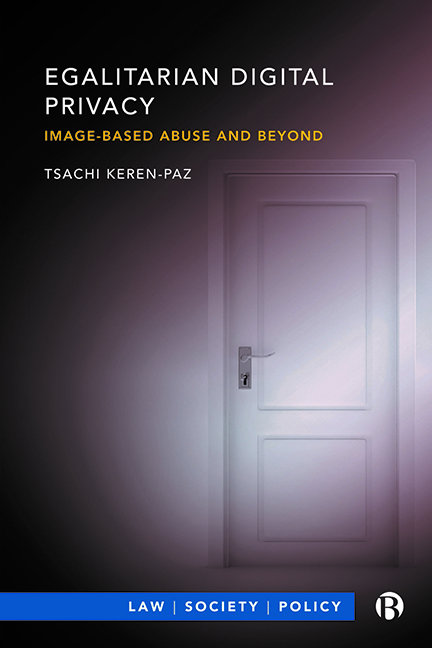Book contents
- Frontmatter
- Dedication
- Contents
- Acknowledgements
- Series Editor’s Preface
- 1 Introduction
- 2 Setting the Ground: The Intermediary Liability Debate and Framing Issues
- 3 First Principles and Occupiers’ Liability: The Case against Immunity
- 4 Property and Privacy: The Case for Strict Liability
- 5 Property and Privacy: Objections and Possible Extensions
- 6 The Policy Debate: Uniqueness of Harm from NCII
- 7 The Policy Debate: Freedom of Expression and Financial Costs of Filtering
- 8 The Easy Case for Viewers’ Liability: Child Pornography and Apportionment of Liability
- 9 Viewers’ Liability: Intention and Objective Fault
- 10 The Power of Property: Strict Liability for Viewing NCII
- 11 Scope of Liability for Breaches of Privacy
- 12 Is Suing Viewers Practicable?
- 13 Conclusion
- References
- Index
12 - Is Suing Viewers Practicable?
Published online by Cambridge University Press: 17 January 2024
- Frontmatter
- Dedication
- Contents
- Acknowledgements
- Series Editor’s Preface
- 1 Introduction
- 2 Setting the Ground: The Intermediary Liability Debate and Framing Issues
- 3 First Principles and Occupiers’ Liability: The Case against Immunity
- 4 Property and Privacy: The Case for Strict Liability
- 5 Property and Privacy: Objections and Possible Extensions
- 6 The Policy Debate: Uniqueness of Harm from NCII
- 7 The Policy Debate: Freedom of Expression and Financial Costs of Filtering
- 8 The Easy Case for Viewers’ Liability: Child Pornography and Apportionment of Liability
- 9 Viewers’ Liability: Intention and Objective Fault
- 10 The Power of Property: Strict Liability for Viewing NCII
- 11 Scope of Liability for Breaches of Privacy
- 12 Is Suing Viewers Practicable?
- 13 Conclusion
- References
- Index
Summary
Introduction
Is suing viewers practicable? Both academic writing and policy discussions of NCII largely focus on both the uploaders of these images and on criminal responses to the phenomenon, although exceptions obviously exist. While the civil liability of intermediaries is discussed, and considered as the new NCII frontline (Rackley et al, 2021), liability of viewers of images is indeed a cutting-edge idea that might, or not, become a future frontline. There is a general consensus that civil action against uploaders is relatively straightforward – a practitioner cited by Rackley et al refers to these cases as ‘nearly all slam-dunk cases’ – although, as we have seen, the picture in the US is less straightforward (Lollar, 2013; Skinner-Thompson, 2018). At the same time, the consensus is that the practical potential of claims against uploaders is limited due to the high costs of litigation and the prospect that many uploaders would be judgement-proof (Goldman and Jin, 2018: n290; Rackley et al, 2021). In particular, the Law Commission Consultation Paper concludes ‘that civil remedies are costly, time-consuming and may not be effective or accessible to most or all victims. Seeking redress through the civil courts may require a victim to risk their financial security. It can be an ineffective tool’ (Law Commission, 2021: 398). The verdict by Rackley et al (2021) is less damning: after explaining the unaffordability of civil litigation to most victims, the authors mention that ‘the civil law has teeth and – if it bites – can leave perpetrators, and (in some cases) those who enable them, liable for substantive damages’. Echoing the argument I have made for the role of private law in remedying sex trafficking (Keren-Paz, 2013), the authors mention the empowering potential of private law, in that claimants have control of the process in civil litigation and by allowing more opportunity for recognition. Ultimately, however, recognizing that ‘the sticking point, of course, is money’, the authors suggest to focus energy in suing hosts, which if would prove successful, would dramatically change the technological landscape.
- Type
- Chapter
- Information
- Egalitarian Digital PrivacyImage-based Abuse and Beyond, pp. 214 - 223Publisher: Bristol University PressPrint publication year: 2023



